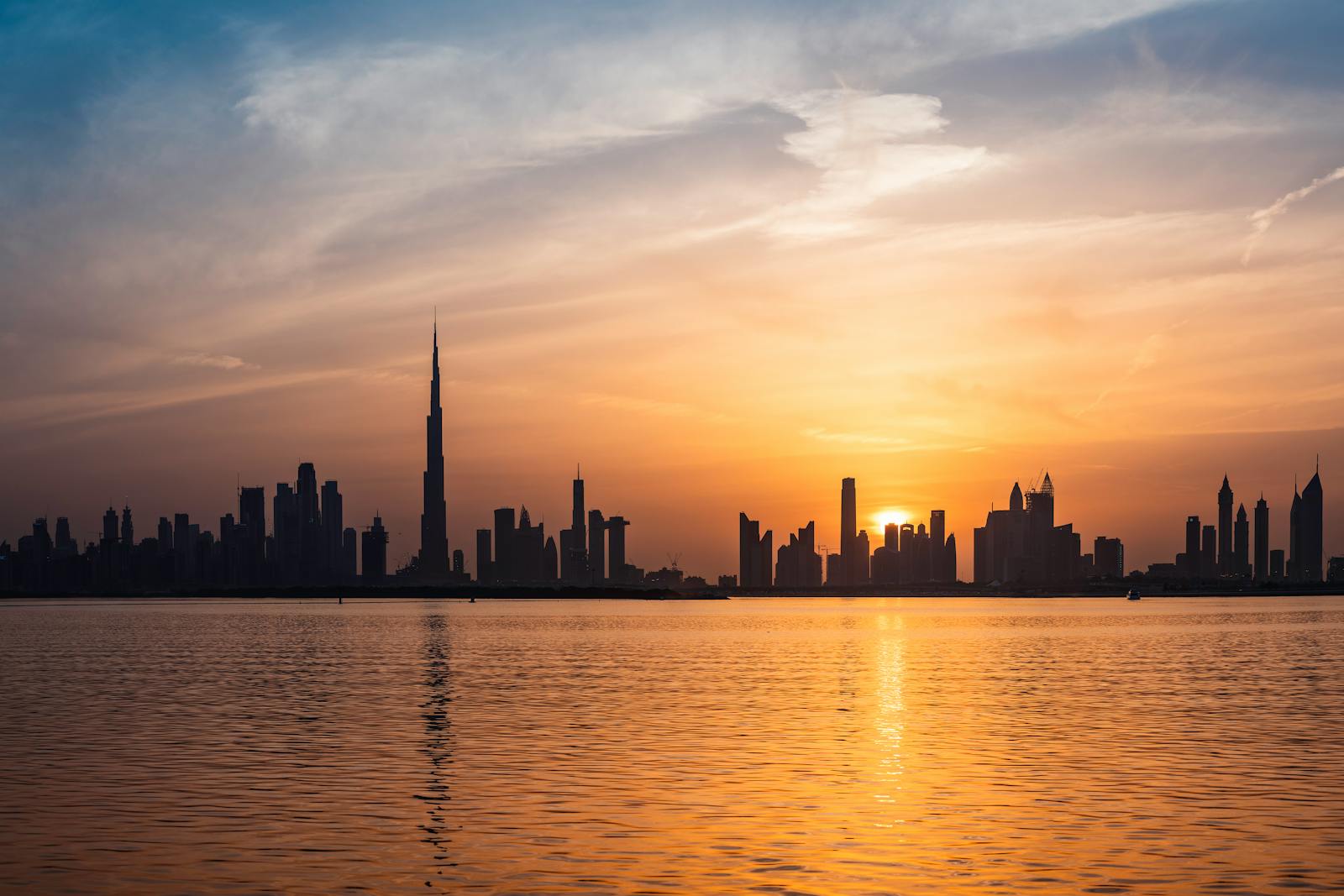Dubai is a dazzling, futuristic city that has rapidly emerged as one of the world’s top tourist destinations. Known for its towering skyscrapers, luxury shopping malls, and stunning desert landscapes, Dubai offers a unique blend of ancient culture and modernity. However, the culture, laws, and customs in Dubai can be very different from what Americans are accustomed to, so it’s important to be informed before visiting. Here are 15 things Americans should know before traveling to Dubai.
1. Dubai Is Safe for Tourists
One of the first things you’ll notice when visiting Dubai is how safe the city is. Crime rates are exceptionally low, and Dubai is known for its strong legal system and strict law enforcement. Petty crimes such as pickpocketing are rare, and visitors often feel comfortable walking around at any time of the day or night. However, it’s still important to use common sense and stay aware of your surroundings, particularly in crowded areas.
That said, laws in Dubai are strict, and punishments for breaking them can be severe. It’s important to familiarize yourself with local rules and regulations to ensure a smooth trip.
2. Dubai Is Very Modern but Still Conservative
While Dubai is one of the most modern and cosmopolitan cities in the Middle East, it remains a part of the United Arab Emirates (UAE), where Islamic traditions shape many aspects of life. Visitors are expected to respect local customs, particularly in how they dress and behave in public. Modesty is important, especially when visiting malls, restaurants, and public areas.
For women, it’s recommended to wear clothing that covers the shoulders and knees, although you’ll find more relaxed dress codes in private spaces such as hotels and beach clubs. Men should avoid going shirtless in public areas, except for pool and beach settings. In religious sites like mosques, both men and women are required to cover their arms and legs, and women must cover their heads with a scarf.
3. Public Displays of Affection Are Limited
Public displays of affection, such as kissing and hugging, are considered inappropriate in Dubai and can lead to legal consequences. Holding hands is generally accepted for married couples, but anything more affectionate should be reserved for private settings. This cultural norm stems from the conservative values of the UAE, and it’s important to be respectful of these traditions while visiting.
If you’re traveling with your partner, be mindful of your behavior in public places to avoid any uncomfortable situations or confrontations.
4. Dubai Is Hot Year-Round
Dubai is located in the desert, and its weather reflects that. The city experiences extremely high temperatures, particularly from June to September, when temperatures can exceed 100°F (38°C). During these months, most outdoor activities are limited, and air conditioning becomes your best friend.
The best time to visit Dubai is from November to March, when the weather is cooler and more bearable, making it easier to explore outdoor attractions. Even then, it’s important to stay hydrated, wear sunscreen, and plan activities during the cooler parts of the day, such as early morning or late afternoon.
5. Weekends Are Friday and Saturday
In Dubai, the workweek runs from Monday to Friday, with Friday and Saturday serving as the weekend. Friday is a holy day in Islam, and many businesses close for part of the day to accommodate Friday prayers. Malls and attractions may open later in the afternoon on Fridays, but the city is generally bustling with activity once the weekend begins.
If you’re planning meetings or visits to certain businesses, make sure to keep this schedule in mind, as it may differ significantly from the traditional Monday-to-Friday workweek in the U.S.
6. Dubai Has Strict Laws Regarding Alcohol
While alcohol is available in Dubai, it’s important to understand that drinking laws are strict. Alcohol can only be consumed in licensed venues such as hotels, bars, and clubs. Drinking alcohol in public places, such as beaches or parks, is illegal and can result in heavy fines or even imprisonment.
Non-Muslim tourists can purchase alcohol from liquor stores, but you’ll need a temporary liquor license to do so, which is usually provided by the hotel you’re staying at. Drinking and driving is also strictly prohibited, with a zero-tolerance policy on blood alcohol levels. It’s essential to be mindful of these regulations to avoid legal trouble.
7. Public Transportation Is Efficient
Dubai’s public transportation system is clean, efficient, and reliable. The Dubai Metro, which connects major parts of the city, is one of the most popular ways to get around, and it’s very affordable. The metro has separate Gold Class carriages for those willing to pay extra for more comfort, as well as Women and Children Only carriages for added safety.
Taxis are also widely available and relatively inexpensive, and you can use apps like Careem and Uber for ride-hailing services. However, if you’re planning to visit more remote areas or explore the desert, it’s recommended to rent a car or book a private tour.
8. Arabic Is the Official Language, but English Is Widely Spoken
The official language of Dubai is Arabic, but English is widely spoken, especially in business, tourism, and hospitality sectors. Nearly all signs, menus, and public information are in both Arabic and English, so getting around and communicating won’t be a problem for English-speaking tourists.
That said, learning a few basic Arabic phrases, like “Shukran” (Thank you) or “Marhaba” (Hello), is always appreciated and can enhance your experience when interacting with locals.
9. Tipping Is Appreciated but Not Required
Tipping in Dubai is not mandatory, but it is appreciated for good service. In most restaurants, a service charge is already included in the bill, so an additional tip is not expected, but you can leave 10-15% for excellent service. For taxi drivers, rounding up the fare or leaving a small tip is common practice.
Hotel staff, such as bellhops and housekeepers, often appreciate tips as well, and it’s customary to leave a small amount for their services.
10. Dubai Is Tax-Free
One of the benefits of visiting Dubai is that there is no sales tax or income tax. This makes shopping in Dubai an attractive proposition for tourists, particularly when it comes to luxury goods. Dubai is known for its massive shopping malls like the Dubai Mall and Mall of the Emirates, where you can find tax-free designer items, electronics, and jewelry.
While there is no tax on goods and services, keep in mind that VAT (Value Added Tax) at 5% was introduced in 2018. However, tourists are eligible for VAT refunds on purchases made at participating retailers, so make sure to ask for a VAT refund form when making larger purchases.
11. Dubai Has Some of the World’s Tallest Skyscrapers
Dubai is home to Burj Khalifa, the tallest building in the world, standing at an astonishing 828 meters (2,717 feet). Visiting the observation decks on the 124th, 125th, and 148th floors offers breathtaking views of the city’s skyline and the desert beyond.
In addition to the Burj Khalifa, Dubai boasts an impressive skyline filled with iconic skyscrapers such as the Burj Al Arab, often referred to as the world’s most luxurious hotel, and the Cayan Tower, a twisting architectural marvel. Exploring these architectural feats is a must for any visitor to Dubai.
12. Respect for Local Culture and Religion Is Important
While Dubai is an international city that welcomes millions of tourists each year, it remains rooted in Islamic traditions. It’s essential to be respectful of local customs and the Islamic faith, especially during religious occasions like Ramadan. During Ramadan, Muslims fast from sunrise to sunset, and visitors should avoid eating, drinking, or smoking in public during daylight hours out of respect.
Most hotels and restaurants remain open during Ramadan and serve food in designated areas, but it’s a good idea to check with local businesses in advance if you’re visiting during this time.
13. Friday Brunch Is a Tradition
One of the most popular social events in Dubai is the extravagant Friday brunch. Many hotels and restaurants offer all-you-can-eat brunches with a wide variety of international cuisines, live cooking stations, and endless beverages. These brunches can range from family-friendly to luxurious affairs with premium drinks and gourmet dishes.
Friday brunch is more than just a meal—it’s an event that often stretches into the afternoon and is a great way to experience Dubai’s food scene and socialize with other tourists and locals.
14. Haggling Is Common in Souks
If you plan to visit Dubai’s traditional markets, known as souks, haggling is a common and expected practice. Whether you’re shopping for gold, spices, textiles, or perfumes, you’ll find that prices are often negotiable. Be polite but assertive when negotiating, and don’t hesitate to walk away if the price isn’t right—the vendor might lower the price to close the deal.
The Gold Souk and Spice Souk in the Deira district are two of the most famous markets in Dubai and offer a vibrant shopping experience steeped in local culture.
15. Dubai Has Amazing Outdoor and Desert Experiences
Beyond its towering skyscrapers, Dubai offers an array of outdoor activities and desert adventures. Desert safaris are a popular attraction, where visitors can experience dune bashing, camel riding, sandboarding, and even traditional Bedouin-style camps with belly dancing and local cuisine.
For adventure seekers, Dubai also offers skydiving over the iconic Palm Jumeirah, hot air balloon rides over the desert, and water sports at popular beaches like JBR (Jumeirah Beach Residence) and Kite Beach. Whether you’re exploring the city’s beaches or venturing out into the desert, Dubai’s outdoor activities offer something for everyone.
Conclusion
Dubai is a vibrant city that offers a unique blend of luxury, culture, and adventure. Whether you’re looking to explore its towering skyscrapers, enjoy world-class shopping, or embark on a desert safari, Dubai has something for everyone. However, as a visitor, it’s essential to respect the local customs, understand the laws, and be mindful of the cultural differences to ensure a smooth and enjoyable experience. By keeping these 15 tips in mind, you’ll be well-prepared to make the most of your trip to this dynamic city.




